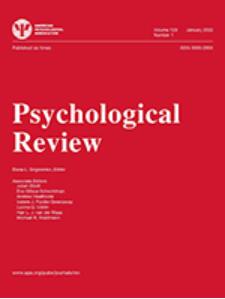How is calendar calculation in autism possible? A language model.
IF 5.8
1区 心理学
Q1 PSYCHOLOGY
引用次数: 0
Abstract
Detailed case studies of individuals with brain injuries have long provided valuable insights into how cognitive functions are organized. Similarly, the study of individuals with highly idiosyncratic cognitive abilities can shed light on the outer limits of human cognition. One such phenomenon is calendar calculation (CC), the ability to identify the day of the week that corresponds to a given date or the dates that match a particular calendar configuration. CC is the most commonly reported "special ability" in autism and is unique in its accuracy and speed, often surpassing experienced mathematicians. Recent findings suggest that a significant proportion of autistic children with oral language delays first acquire and prefer the written code, which may help pave the way for oral language acquisition. This atypical pathway for language acquisition invites a rethinking of the mechanisms underlying CC. In this article, we propose an integrative model in which the development and mastery of CC in autism are driven by the orientation of the innate linguistic cognitive resources toward an equivalent complex symbolic system. This model offers a novel perspective on the language trajectories observed in autism, their role in facilitating expertise in nonsocial complex material, and the broader flexibility of human language-based abilities. (PsycInfo Database Record (c) 2025 APA, all rights reserved).自闭症患者如何进行日历计算?语言模型。
长期以来,对脑损伤患者的详细案例研究为了解认知功能的组织方式提供了有价值的见解。同样,对具有高度特殊认知能力的个体的研究可以揭示人类认知的外部限制。其中一种现象是日历计算(CC),即识别与给定日期对应的星期几或与特定日历配置匹配的日期的能力。CC是自闭症患者最常被报道的“特殊能力”,它在准确性和速度上是独一无二的,经常超过有经验的数学家。最近的研究结果表明,很大一部分患有口语语言延迟的自闭症儿童首先习得并更喜欢书写代码,这可能有助于为口语习得铺平道路。这种非典型的语言习得途径引发了对CC机制的重新思考。在本文中,我们提出了一个整合模型,在该模型中,自闭症患者CC的发展和掌握是由先天语言认知资源向等效复杂符号系统的取向驱动的。该模型为观察自闭症的语言轨迹提供了一个新的视角,它们在促进非社会复杂材料的专业知识方面的作用,以及人类语言基础能力的更广泛的灵活性。(PsycInfo Database Record (c) 2025 APA,版权所有)。
本文章由计算机程序翻译,如有差异,请以英文原文为准。
求助全文
约1分钟内获得全文
求助全文
来源期刊

Psychological review
医学-心理学
CiteScore
9.70
自引率
5.60%
发文量
97
期刊介绍:
Psychological Review publishes articles that make important theoretical contributions to any area of scientific psychology, including systematic evaluation of alternative theories.
 求助内容:
求助内容: 应助结果提醒方式:
应助结果提醒方式:


